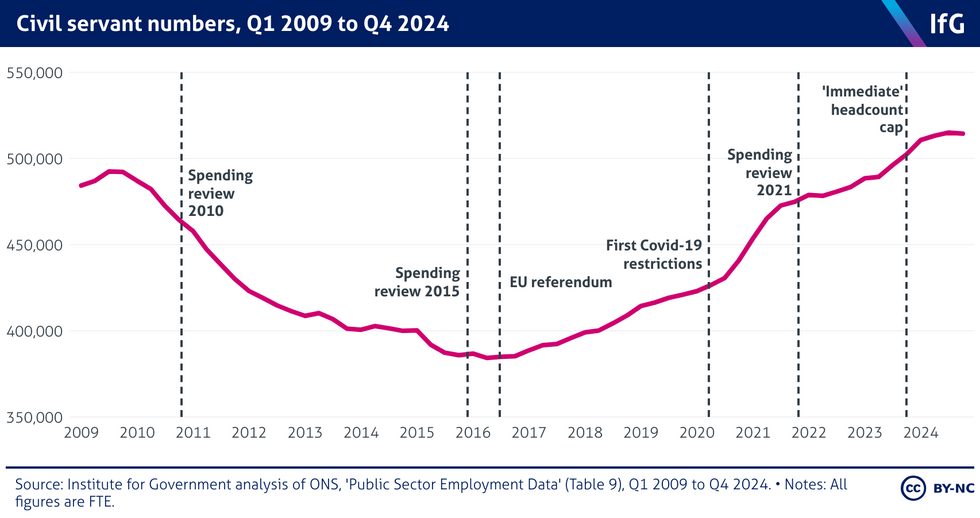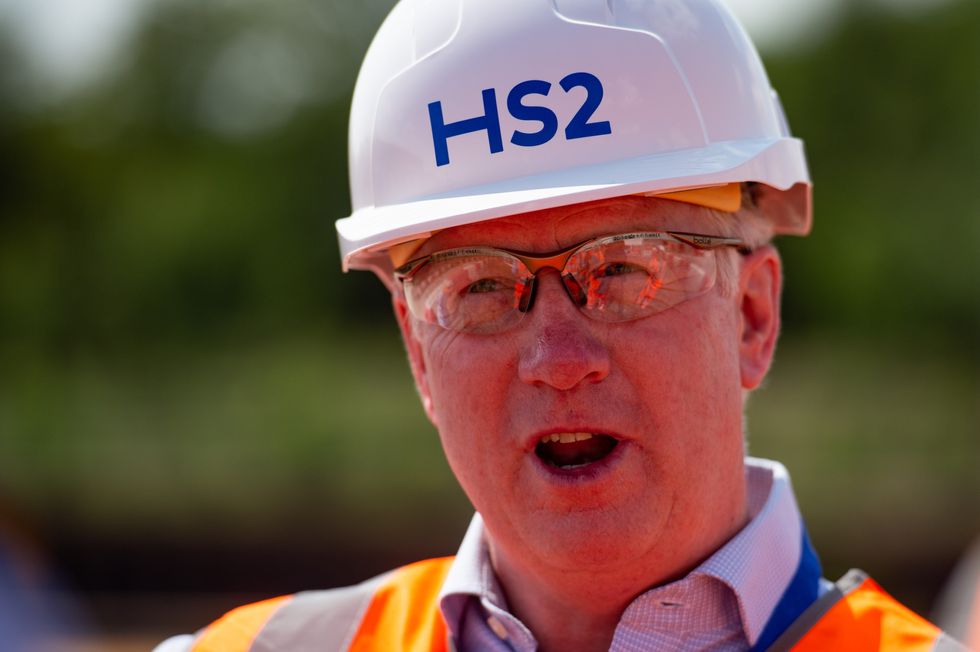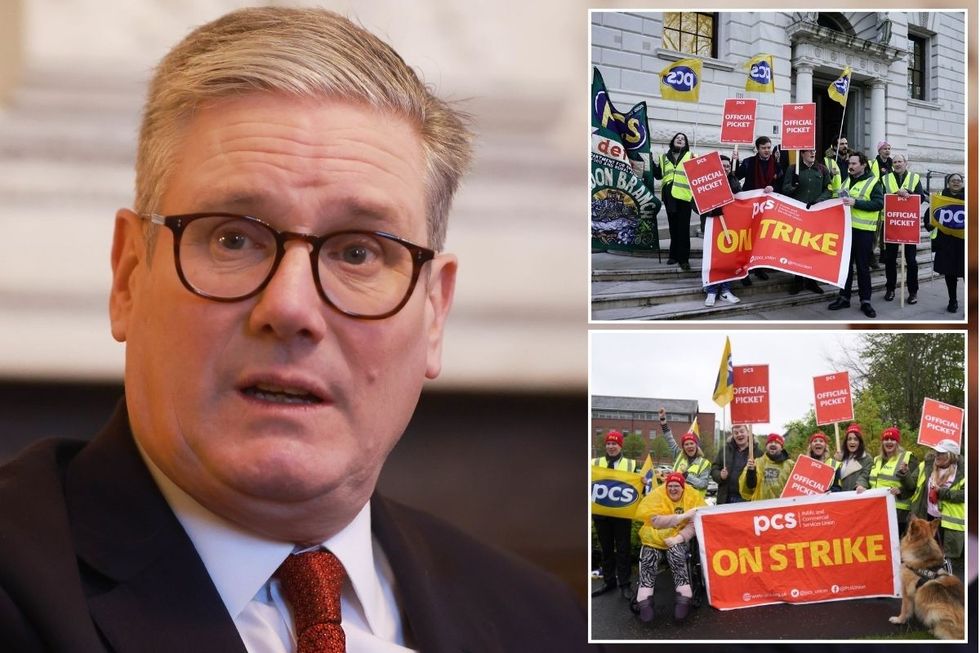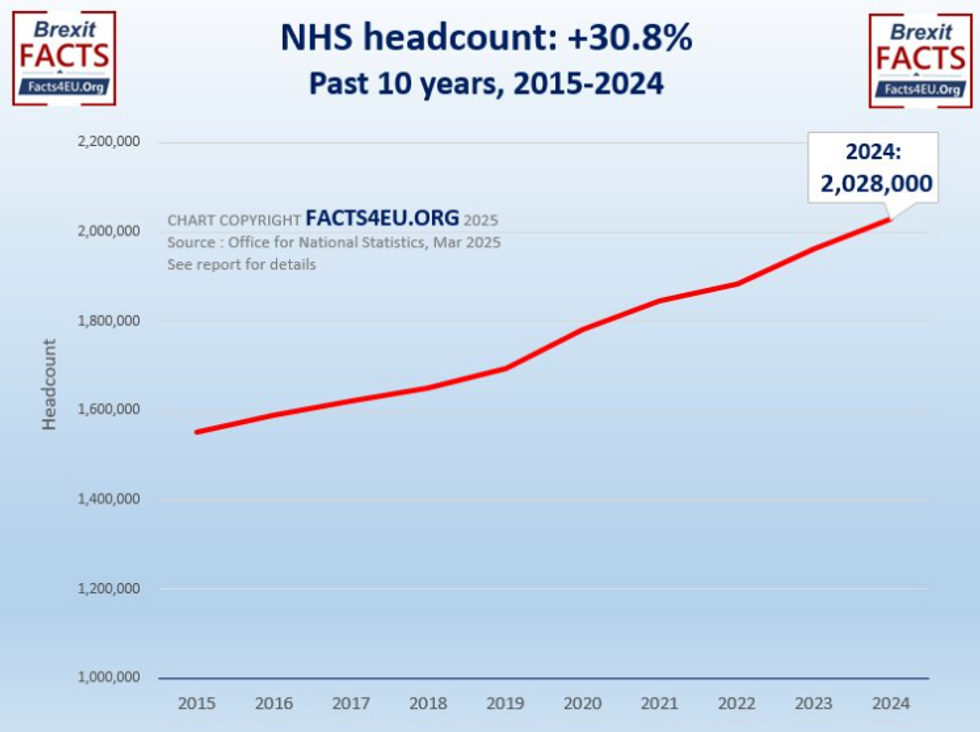Adam Hart
Guest Reporter
As UK companies scramble to cut staff in the wake of Reeves’ budget, the bloating of Britain’s Civil Service has been laid bare in partnership with Facts4EU.
Civil Service numbers are up one third since 2016 (an extra 150,000 employees - equivalent to the population of Cambridge) costing the British taxpayer just under £20billion last year.
That’s £8billion more than the government’s entire justice budget last year, or two-thirds of the entire defence budget.

Defenders of the Service argued this explosion was initially to facilitate Brexit and then to respond to Covid, but since the pandemic ended it has grown by another 92,000 members.
This includes a 42 per cent rise in civil servants earning over £100,000, almost all of whom enjoy lucrative pensions, work from home, government credit cards and an array of other perks.
Analysis has indicated the explosion in numbers is being driven by surging numbers of managers, press officers (also known as ‘communicators’) and DEI staff hired to promote harmony in the workplace, which they often do from home.
The Department for Environment, Food and Rural Affairs (Defra) has grown by 42 per cent in five years, for example.

Much of this growth has come in the form of ‘backroom staff’ who now make up an eye-watering 46 per cent of the civil service.
Any private sector company hiring hundreds of thousands of new staff would obviously be expected to increase output, but OBR analysis has revealed the complete opposite has happened in the Civil Service.
Despite vast increases in manpower, productivity has fallen 1.9 per cent a year and is now 5 per cent lower than in 1997.
In 1997, Google had not been invented, 20 per cent of the population owned a mobile phone and people listened to music on CDs.
Now, with the power of sophisticated AI models, unprecedented connectivity via tools like Microsoft Teams and the widespread use of laptops, tablets and smartphones, productivity is worse.
Critics have called this a ‘national disgrace’, pointing to one particularly grating that exposed Civil Service inefficiency.
One civil servant was exposed last week for holding three full time jobs within the civil service, a serious fraud offence.
Thanks to work from home, the employee was able to collect three full time salaries, pensions and perks for two years, only being caught when a government fraud squad stepped in, not because their work output was too low.

Ballooning numbers has not just cost the taxpayer in hefty salary and pension payments.
Indeed, FoI data revealed civil servants armed with government credit cards had spent an eye-watering £675million taxpayer money (a quadrupling since 2021) on a variety of jollies including trips to adventure parks, catering from Fortnum and Mason and dry cleaning.
Only now are the 20,000 credit cards in civil servants’ possession being cracked down upon.
And it’s not just the Civil Service which has seen an explosion in numbers.
The NHS, Britain’s biggest employer, has increased by almost half a million full time employees since 2015, jumping from 1,551,000 to 2,028,000 in 2024.
This increase of 477,000 employees (slightly larger than the entire population of Manchester, Britain’s sixth biggest city) means the health service has grown by 30 per cent in ten years.
This was an increase of 48,000 from last year, a 2.4 per cent rise, some of which was made up by the proliferation of diversity champions to ensure the NHS is an inclusive place of work.
LATEST FROM MEMBERSHIP:

It comes as Chancellor Rachel Reeves scrambles to get the nation’s finances back on track after her budget failed to spark growth.
The Chancellor is looking to make savings by pruning the Civil Service, asking senior mandarins to slash 15 per cent from departmental administrative budgets by 2029/30.
That would save an estimated 2.2billion a year, money the Chancellor has pledged will be redirected into ‘frontline services.’
Reeves said this would mean cutting 10,000 jobs but faces intense pressure from unions and members of her own party.
On the weekend Transport Secretary Heidi Alexander said the government was not setting a target for job cuts.
She told Times Radio: “We have made a commitment to reduce the administrative costs of the civil service by 15 per cent over the next five years. We haven’t set any headcount reduction targets on that.”
“We’re not setting a target. Boris Johnson did that, and said that he wanted to reduce the number of people working in the civil service, and the numbers went up by 130,000.
“What we want to do is make this state more agile. We do think it should be leaner, and we think we can make better use of technology, AI, in how we provide public services. That is true for central government departments as much as it’s true for other parts of the public service.”
Find Out More...
Civil Service numbers are up one third since 2016 (an extra 150,000 employees - equivalent to the population of Cambridge) costing the British taxpayer just under £20billion last year.
That’s £8billion more than the government’s entire justice budget last year, or two-thirds of the entire defence budget.

Defenders of the Service argued this explosion was initially to facilitate Brexit and then to respond to Covid, but since the pandemic ended it has grown by another 92,000 members.
This includes a 42 per cent rise in civil servants earning over £100,000, almost all of whom enjoy lucrative pensions, work from home, government credit cards and an array of other perks.
Analysis has indicated the explosion in numbers is being driven by surging numbers of managers, press officers (also known as ‘communicators’) and DEI staff hired to promote harmony in the workplace, which they often do from home.
The Department for Environment, Food and Rural Affairs (Defra) has grown by 42 per cent in five years, for example.

Much of this growth has come in the form of ‘backroom staff’ who now make up an eye-watering 46 per cent of the civil service.
Any private sector company hiring hundreds of thousands of new staff would obviously be expected to increase output, but OBR analysis has revealed the complete opposite has happened in the Civil Service.
Despite vast increases in manpower, productivity has fallen 1.9 per cent a year and is now 5 per cent lower than in 1997.
In 1997, Google had not been invented, 20 per cent of the population owned a mobile phone and people listened to music on CDs.
Now, with the power of sophisticated AI models, unprecedented connectivity via tools like Microsoft Teams and the widespread use of laptops, tablets and smartphones, productivity is worse.
Critics have called this a ‘national disgrace’, pointing to one particularly grating that exposed Civil Service inefficiency.
One civil servant was exposed last week for holding three full time jobs within the civil service, a serious fraud offence.
Thanks to work from home, the employee was able to collect three full time salaries, pensions and perks for two years, only being caught when a government fraud squad stepped in, not because their work output was too low.

Ballooning numbers has not just cost the taxpayer in hefty salary and pension payments.
Indeed, FoI data revealed civil servants armed with government credit cards had spent an eye-watering £675million taxpayer money (a quadrupling since 2021) on a variety of jollies including trips to adventure parks, catering from Fortnum and Mason and dry cleaning.
Only now are the 20,000 credit cards in civil servants’ possession being cracked down upon.
And it’s not just the Civil Service which has seen an explosion in numbers.
The NHS, Britain’s biggest employer, has increased by almost half a million full time employees since 2015, jumping from 1,551,000 to 2,028,000 in 2024.
This increase of 477,000 employees (slightly larger than the entire population of Manchester, Britain’s sixth biggest city) means the health service has grown by 30 per cent in ten years.
This was an increase of 48,000 from last year, a 2.4 per cent rise, some of which was made up by the proliferation of diversity champions to ensure the NHS is an inclusive place of work.
LATEST FROM MEMBERSHIP:
- Are these Reform UK’s next wins? Elections due in ‘fertile Farage territory’ TOMORROW
- An army under EU control just became a VERY serious reality - Ann Widdecombe
- UK's migration trap EXPOSED: Halal butchers and kebab shops issuing hundreds of skilled worker visas

It comes as Chancellor Rachel Reeves scrambles to get the nation’s finances back on track after her budget failed to spark growth.
The Chancellor is looking to make savings by pruning the Civil Service, asking senior mandarins to slash 15 per cent from departmental administrative budgets by 2029/30.
That would save an estimated 2.2billion a year, money the Chancellor has pledged will be redirected into ‘frontline services.’
Reeves said this would mean cutting 10,000 jobs but faces intense pressure from unions and members of her own party.
On the weekend Transport Secretary Heidi Alexander said the government was not setting a target for job cuts.
She told Times Radio: “We have made a commitment to reduce the administrative costs of the civil service by 15 per cent over the next five years. We haven’t set any headcount reduction targets on that.”
“We’re not setting a target. Boris Johnson did that, and said that he wanted to reduce the number of people working in the civil service, and the numbers went up by 130,000.
“What we want to do is make this state more agile. We do think it should be leaner, and we think we can make better use of technology, AI, in how we provide public services. That is true for central government departments as much as it’s true for other parts of the public service.”
Find Out More...
